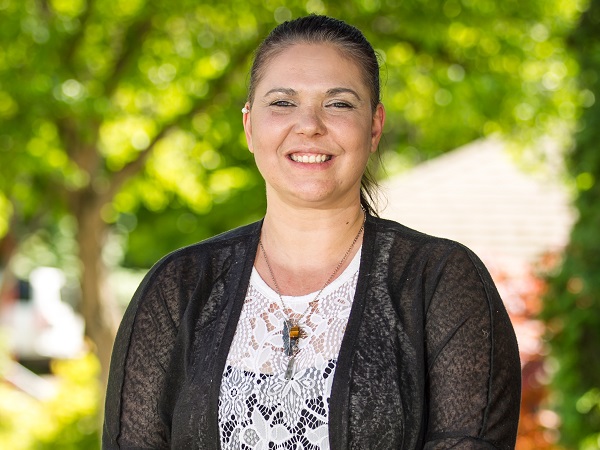
For Jeanette Anderson, the path to recovery was a long and winding road. As a 15-year-old teen, she became addicted to alcohol and methamphetamine and, in retrospect, felt predisposed since she first tried marijuana at age seven. Over the next 22 years, she went through periods of rehabilitation and sobriety, often followed by relapses. She temporarily lost custody of her daughter, was sucked into a now-ended violent relationship, and spent a few days in jail for a charge that was reduced if she promised to get into a treatment program.
So in 2014, she tried a mothers’ rehabilitation program in Spanaway, Wash. After becoming sober, Jeanette started hearing voices and became delusional. Her neighbors realized she was “gravely disabled” and took her to Valley Medical Center in Renton, Wash. After staying in a psychiatric hospital for 10 days (“I only remember three”), and being diagnosed with schizophrenia, she wanted to stay sober and refused to take narcotic medications.
At that point, a loved one took her to Sound Mental Health’s Tukwila location, where she says “they saved my life. I am totally pro-SMH.”
There, she saw two clinicians, Elizabeth Schaper and Kristin Roberts, and Peer Support Specialist Soajima Gill. She credits them all with giving her the medications and tools to cope, such as the Wellness Recovery Action Plan, the Crisis Plan, and an After Plan. She joined an “I Hear Voices Group” and a grief group and enrolled with her daughter in a therapy group where her daughter could vent, which Jeanette said was “painful to hear but I needed to hear.”
Her supports include individual and group therapy sessions, medication, and the soothing influence of video games: ”They keep me calm,” she says. “And when I’m upset, I use my wellness tools.”
Her family relationships are completely restored. “I’m closer to my mom than I have ever been. I forgave her because I saw that parenting is tough,” she says. Jeanette is now a grandmother and sees her daughter, who is now 18, at church every week.
“I am so happy and grateful for the life I have. I have so much support and will keep them in place. I wouldn’t be here but for the support, especially peer counseling with Soajima. Now I want to do that for someone else.”
In fact, she was so comfortable that three years ago Gill suggested she think about doing more, perhaps volunteering. She then signed up with a consumer research center specializing in housing and “got really good at it.” But she wanted more. So she used the services of the Department of Vocational Rehabilitation to search for a job.
She interviewed with Community Psychiatric Clinic in Belltown for a peer counseling position. To get a license from the Department of Health, she went through training, a yearlong volunteer internship, and four months of helping her coworkers before getting her license. She is now part of the Washington Recovery & Monitoring Program (WRAMP), where she will be monitored and supported every day for two years.
While working 40 hours a week, she meets with Gill twice a week, takes part of therapy groups three days a week, has random drug testing 8 to 12 times a year, and submits reports.
She is still with her boyfriend of 18 years and lives with him, three dogs, and a cat in Tukwila.
“Meth was the worst,” Jeanette says now. “It triggered something inside my brain and made me mentally ill. I’ve seen it in others doing meth, but often they don’t know because they are inebriated. Only two percent of meth addicts recover long-term. Now when I meet people on meth, I’m right here and ready to walk with them on the path to recovery.”